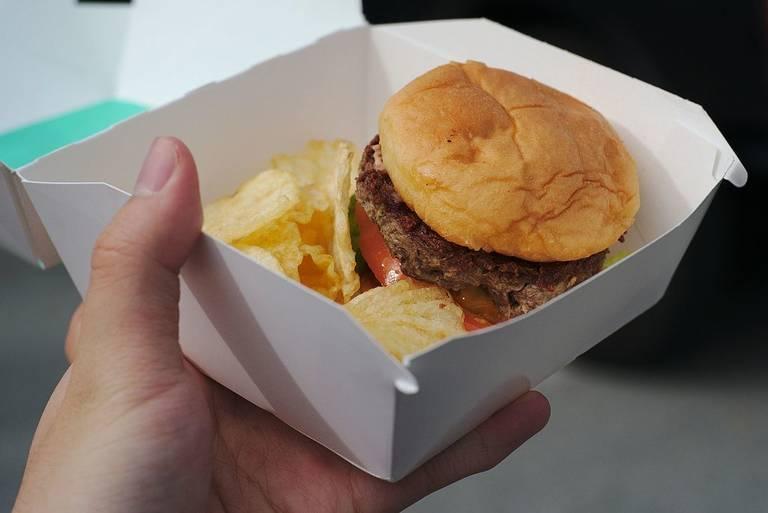
For those who think that eating your veggies is boring, there's good news.
2017 was a banner year for food innovation, particularly when it came to dishes that don't contain the most common allergens, like wheat, corn and soy.
In fact, who would have figured food disruptors could actually make edible things out of pea protein? More to the point: Who'd think we'd like it?
But vegan foods are becoming more than a fad. While the stats still suggest that the number of hard-core vegans is still pretty small (roughly 2 percent), there's another impressive stat that is driving new innovation: The numbers of people who for one reason or another are turning to vegetarian cuisine on either a casual or full-time basis.
Beyond Meat: TGI Friday's new burger
Many Americans wouldn't dare consider a vegan burger fitting to be included on a meat and chicken menu. But in January Beyond Meat's 6-ounce patty will earn an esteemed place at the burger bar. The plant-based sandwich has already passed the muster at six Boston franchises. The product, a meaty, juicy look-alike is the latest vegan concept to become restaurant fare.
For TGI Friday's, which has been working hard to redesign its menu and its appeal, the gluten-free burger offers a unique chance to capture a bit more of today's discerning restaurant customer base.
Pea isolate: impossible edible legume
Beyond Meat wasn't the only company to benefit from the growing interest in plant-based foods. Ripple Milk and Impossible Foods, whose products are both made from pea isolates and other plant substances, are capturing a share of the meat alternatives market as well. And say what you will about beans, green peas and those other foods our mothers used fill our plates with, consumers aren't turning them down.
In fact, Ripple Milk is already seeing a profit from the downturn in conventional milk sales, which is expected to drop more than 10 percent by 2020. With protein content that outstrips both cow's, almond and soy milk, the idea of a milk made from legumes doesn't sound so bad to consumers.
Unlike its main competitor, Beyond Meat, Impossible Foods' burger isn't gluten free. It also isn't based on pea isolate. What it does offer is an intriguing combination of ingredients that many say give it the texture of ground beef. As to its ability to "bleed" like real meat, therein lies Impossible Foods' piece de resistance: replicated heme that's vegan in origin and allows the burger to cook and taste like beef.
Geltor's fake gelatin is building a market of its own
When food disruptors Alex Lorestani and Nick Ouzounov were creating their imitation gelatin product, Geltor (formerly Gelzen), they weren't necessarily trying to compete with ready-made gelatin desserts. They had a much bigger market in mind.
Gelatin, which is commonly made from beef, pork, horse and fish by-products, is used in a large number of processed foods. Everything from candy to canned meat may contain gelatin, a substance that is almost as essential to the food industry as sugar and salt.
But there are compelling reasons for developing a vegetarian equivalent that's made from recombinant proteins. Not only do vegetarians and vegans often shun the thought of eating a meat-based ingredient, but some cultures forbid it. And those who may have ethical compunctions about eating a product made from an animal they can't confirm was treated humanely, may have a problem with the ingredient as well.
For now, Geltor is still grooming its market. Replacing something that has been the go-to ingredient for hundreds of years isn't easy.
Still, if there is any takeaway from this year's boom in artificial meat products, it is the fact that consumers are making informed choices about their foods and in many cases, are willing to opt for processing strategies that allow them to shun meat-based, organic sources. Vegan gummy bears that taste like the old standby may be right around the corner.
Wikimedia image: Dllu
Jan Lee is a former news editor and award-winning editorial writer whose non-fiction and fiction have been published in the U.S., Canada, Mexico, the U.K. and Australia. Her articles and posts can be found on TriplePundit, JustMeans, and her blog, The Multicultural Jew, as well as other publications. She currently splits her residence between the city of Vancouver, British Columbia and the rural farmlands of Idaho.














